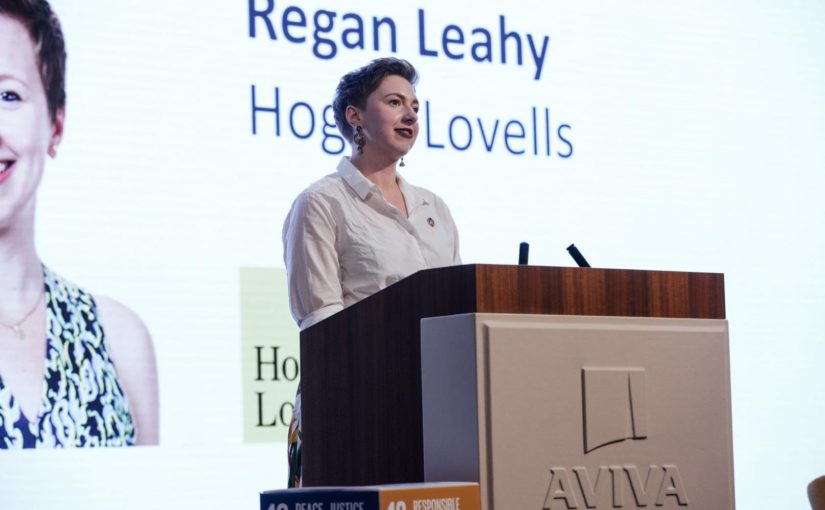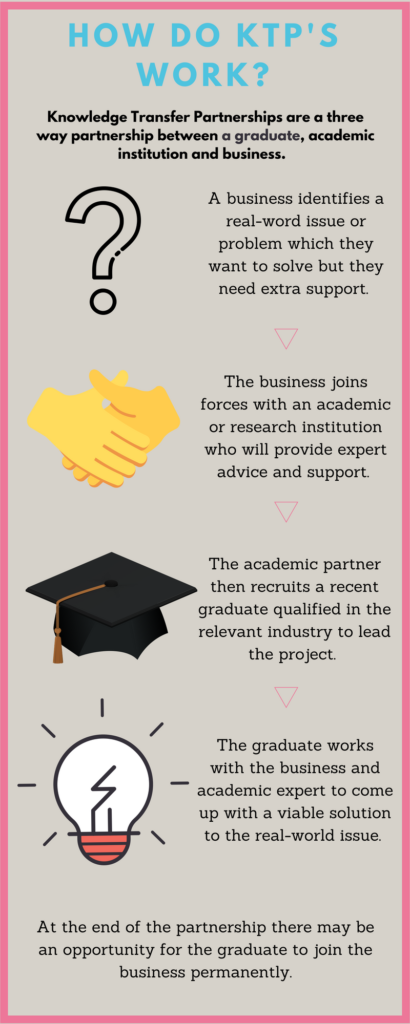Regan Leahy chose to come to Birkbeck in 2015 after being recommended the course in MSc Development Studies. Originally, she had intended to pursue a law career, having undertaken a position at international law firm Hogan Lovells in 2013 and established a career path in the firm. In understanding the growing overlap in corporate social responsibility and development, Regan decided to combine her skills and interests, both personal and professional, to undertake further study.
In July 2019, Regan was selected as the first ever UK SDG Pioneer winner and then went on become the global winner for advocacy and sustainable solutions, both awarded by the UN Global Compact Network.
Sustainable Development Goals (SDGs) were set by the United Nations Development Programme in 2015 as a global call to action to end poverty, protect the planet and to ensure peace and prosperity for the year 2030.
Regan took the time to talk more to us about coming to Birkbeck, her recent achievement and some advice for those considering a similar path.
What did you enjoy most about Birkbeck and what it offered you as a student?
I really enjoyed the diverse groups of people in my classes. It made the classroom discussions and debates more interesting to have a wider variety of people with backgrounds in industry, academia, and the third sector. I also enjoyed the methodology of the classes I took where we started at the beginning to get back into the academic mind-set. I had only been out of academic study for a few years so remembered how to read and analyse, but I thought it was so clever the way our assignments were structured to help us get back into the swing of things.
How did the volunteer programme contribute towards the Sustainable Development Goals set by the UN?
Barefoot Futures is Hogan Lovells’ global skills-based volunteering programme that inspires young people to take SDG-related action in their local community. The workshop is delivered by volunteers from Hogan Lovells to students in schools all over the world and seeks to raise awareness about the SDGs and innovative solutions by introducing students to the Barefoot solar mamas of Barefoot College and how young people can use STEM solutions to achieve the goals. Over 195 volunteers have taught 1,400 students in 31 schools in 12 countries and 87% of students agreed they would like to develop new solutions to global problems in the future.
What are the challenges that you face and what advice can you give to students considering similar career paths?
The intersection of development and business is only growing and business and NGOs will require experts with knowledge on both topics. As with the SDGs, collaboration is key and different industries, sectors, and organisations need to use their skills, people, and influence to create sustainable change. The challenge is showing different stakeholders that this is what the world needs and showing them how they can help. Businesses need to widen their measures of success and NGOs need to create engagement opportunities for businesses that are more than just financial. For students considering similar career paths, I’d recommend getting out into the world and networking! The best collaborations and uses of my degree have come from meeting different people and figuring out how to bring them all together under a shared vision and project.
It’s fantastic that you have inspired so many students. To round it off, did you want to say whether you are optimistic about the future and that these kinds of partnerships and business can broadly be a key solution to the world’s problems?
I’m happy to say that I am optimistic about the future. Young people in the world today are not shying away from tackling complex, global issues that are affecting their local communities. From plastic use to gun violence, young people want to live in a world that reflects their values and I’m delighted that the private and third sectors are collaborating to give young people and the adults who works for them the opportunity to use their voices, talents, and influence to build the world we want.
Hogan Lovells partner with Birkbeck to ensure prospective students are not deterred from studying law on account of their financial situation. Their generous scholarship programme supports two talented students in Birkbeck’s School of Law



